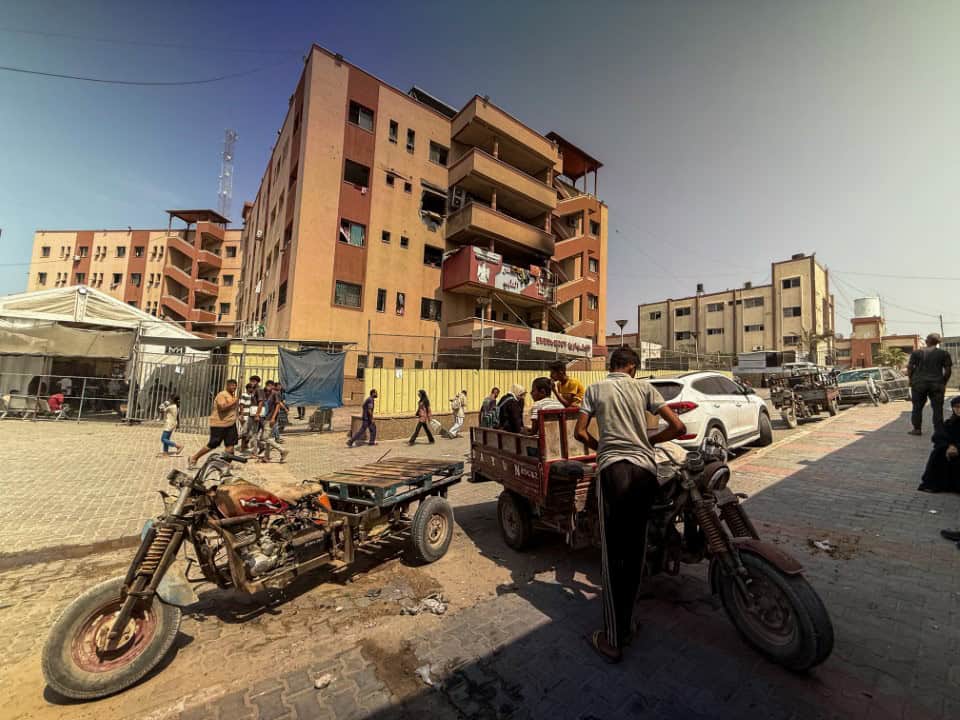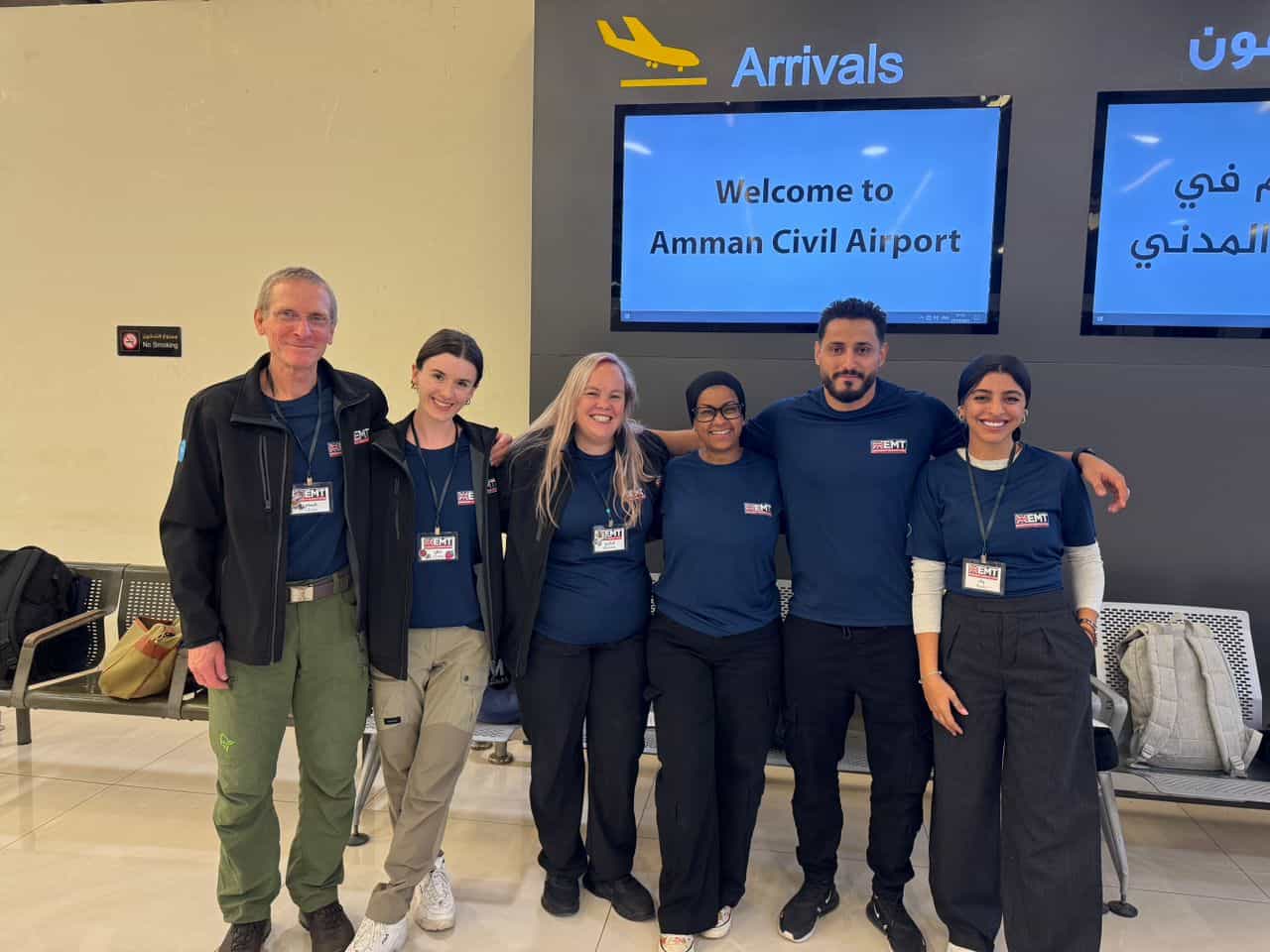
In recent weeks, UK-Med staff and volunteers have accompanied critically ill and injured Palestinian children, along with their family members, on four medical evacuation flights from Gaza to the UK.
Our UK Emergency Medical Team (UK-EMT) focussed on the needs of family members, while the NHS provided medical care for the children. In total, the UK EMT supported 49 children on the shared mission toward safety, treatment, and hope.
Below, three UK Emergency Medical Team members share their experiences of the evacuation flights:
Diana Maddah – Senior Health Advisor, UK-Med
“Slowly, silence turned into connection, and fear into small flickers of hope.”
Their faces told a thousand stories. Beautiful faces marked by grief, exhaustion, and some by physical scars. Children with smiles that tried to shine, but behind them lay sadness too heavy for such young hearts.
The children and their parents had not slept properly in days and were completely exhausted.
For many of the children, a plane had only ever meant explosions and bombs – a machine of noise and destruction. Boarding this flight, they clung to their parents, carrying with them the weight of trauma and exhaustion.
My role on the flight was simple, yet deeply human: to offer comfort and connection. Drawing on years of experience in trauma care and public health, I handed out blankets, offered water, and spoke gentle words in Arabic – my mother tongue. Even amidst so much loss and fear, hearing something familiar brought moments of relief.
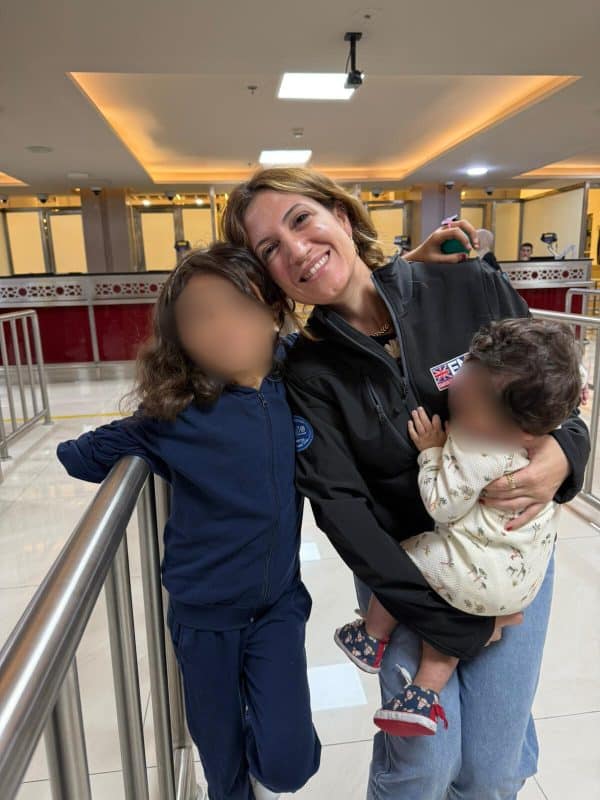
I wish I could say spirits were high, but of course they weren’t.
Most of the children and their parents slept during the journey, sheer exhaustion finally taking over. Those who stayed awake suffered nausea and splitting headaches – little wonder, given what they had endured
And yet, there were moments of relief. Some of the children drew pictures and doodles in the notebooks I gave them, while their parents wrote down their thoughts, fears, and hopes for the future. We told stories, we even laughed together. Slowly, silence turned into connection, and fear into small flickers of hope.
It was an honour to accompany these families to safety, and to witness the first steps of healing amid so much hardship.
Dr. Habab Mekki – Paediatric Emergency Medicine Consultant
“They asked me what the worst thing about the UK is, and I joked, ‘the weather.’ Behind the humour was real fear and uncertainty.”
When we arrived in Amman, Jordan – where all medical evacuees transit for biometric testing and flights to the UK – we spent the first two days meeting the patients and their families. That gave us a chance to get to know them a little before flying out together.
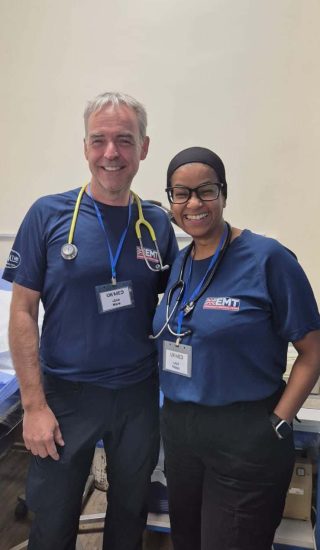
Some of the stories they told were very difficult to hear. Many had been displaced several times in just the last few days. Some said they had been sleeping on the street.
Others told us they had to leave family members behind. That was heartbreaking. It must have been terrifying, stepping into the unknown.
They asked me what the worst thing about the UK is, and I joked, “the weather.” But of course, behind the humour was real fear and uncertainty. Some of them had never left Gaza before. For them, stepping into a new country, a completely new life, was overwhelming.
There were also medical concerns. We saw two children who were clearly malnourished, and quite a few adults, especially fathers, who looked gaunt. Often, parents would sacrifice food so their children could eat.
For many, even the aeroplane itself was frightening. Their only experience of planes was seeing them drop bombs or warning leaflets. Some of the mothers were afraid of heights and cried; it was their very first time on an aeroplane.
There was enormous mental and emotional strain. These children had witnessed so much, and you could see signs of PTSD and depression. They were leaving for physical health reasons – cancer treatment, other medical needs – but the psychological scars will need just as much care.
The feeling was a mix of relief and anxiety. Relief at the thought of safety, of food, of not living in danger every day. But also, anxiety at leaving family behind and stepping into the unknown. Parents especially just wanted the best for their children.
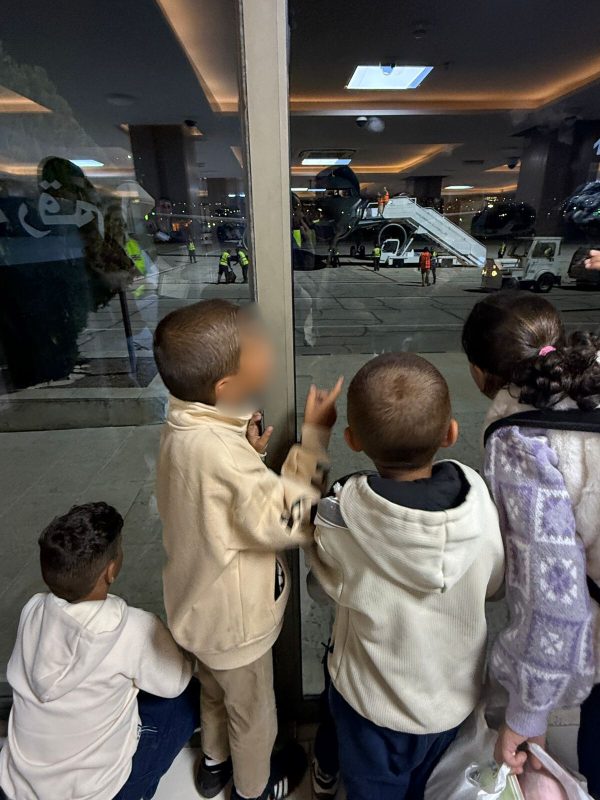
Some had family waiting in the UK. Others hoped to continue their education. They were all carrying dreams of what might be possible in a new life.
I hope they all recover and find that better life.
Catherine Howes – Advanced Nurse Practitioner
“Despite everything, children are still children. At one point, we all sang ‘Baby Shark’ together – and for a moment, there was joy.”
I work as an advanced nurse practitioner with the Children’s Acute Transport Service in London. That means I provide critical care in the back of an ambulance, sometimes in a helicopter, and occasionally on an aeroplane, moving very sick children.
This was my first deployment with UK-Med.
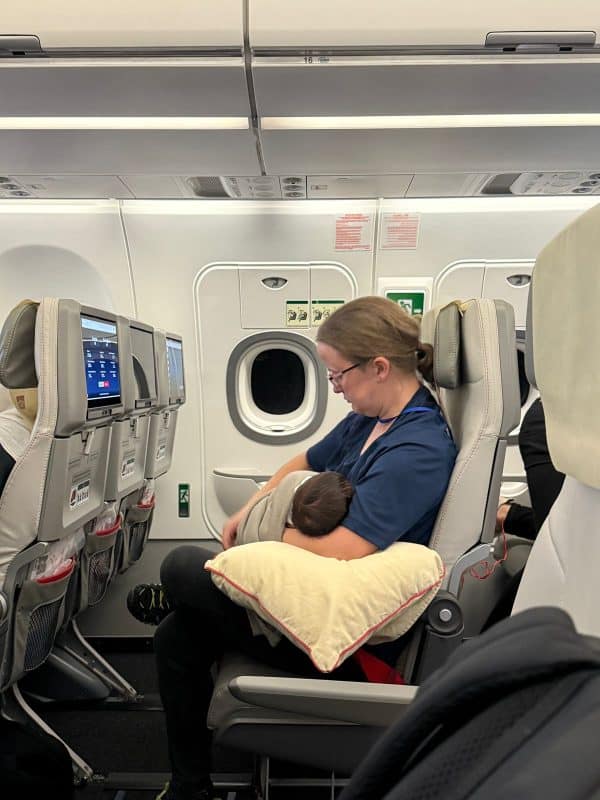
The families came from a range of areas, but many were from Gaza City. The children had congenital cardiac defects, renal problems, oncology needs – and various genetic conditions that required treatment or surgery. And a few had traumatic injuries from the conflict itself, like amputations or shrapnel wounds.
The caregivers had their own medical needs too. One mother was pregnant. One father had a pacemaker but hadn’t received any follow-up care in years.
On top of the medical challenges was the mental health impact. Many had never been on a plane before, and for them, planes were associated with bombs. Loud noises startled them. There was fear, guilt about family left behind, and deep anxiety about what life in the UK would be like.
Food was a recurring theme. One father showed me photos on his phone – first of what he called “bread water,” literally bread torn into water and heated, the only meal he had for his children. Then, as he scrolled, hundreds of saved pictures of restaurant meals appeared. He showed those pictures to his kids while they ate their bread water, so they could imagine better food. It was heartbreaking.
Many families said their children had never seen fresh fruit or vegetables.
The families now face an uncertain future. They will finally get the treatment they desperately need, but the hardest question to answer was: Will we ever be able to go back? Many understood there was no guarantee their homes, lives, or communities would still be there.
And yet, despite everything, children are still children. Mothers are still mothers. Fathers are still fathers. At one point, we all sang “Baby Shark” together. For a moment, after everything they had been through, there was joy.
Every day, UK-Med teams provide lifesaving care to people caught in crisis – in Gaza, Ukraine, Sudan and beyond. But this work doesn’t end when the headlines fade.
You can make sure our trained medics can be there, for as long as they’re needed.



